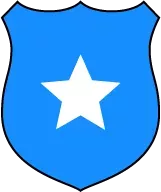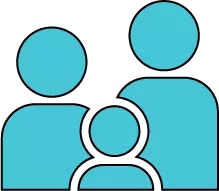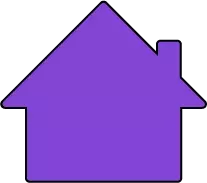Cyberbullying: What You Need to Know
Last Reviewed:
June, 2025
Reviewed By:
JES Legal Specialist

BIG IDEA
If you are being cyberbullied you are not alone and help is available. Reach out to trusted adults or try online resources to get support and stop the bullying.
If you are being cyberbullied you are not alone and help is available. Reach out to trusted adults or try online resources to get support and stop the bullying.
What is Cyberbullying?
Cyberbullying happens when someone uses the internet, cellphones, or other tech to hurt, embarrass, or threaten someone else on purpose and repeatedly.
Examples of Cyberbullying
- Hurtful Images: Sharing or posting pics to embarrass someone.
- Unwanted Contact: Sending emails or messages when the person has asked you to stop.
- Threats and Harassment: Sending threatening or unwanted sexual messages.
- Online Ganging Up: Ridiculing someone by teaming up with others online.
- Spreading Lies: Posting false statements to humiliate someone.
- Sharing Intimate Images Without Consent: Whether the image was initially given willingly, stolen, or manipulated.


Dig Deeper
Cyber Bullying for Youth from Public Safety Canada has information and resources tailored to different age groups.
Legal Consequences
- You could be sued: If you spread false info that harms someone's reputation (defamation), you might have to pay damages.
- You could be charged with a crime: Cyberbullying can also lead to criminal charges like harassment. This could mean jail time and criminal records.


Legal Lingo
- Defamation: Spreading lies that harm someone's reputation can lead to legal trouble.
- Harassment: Making someone fear for their safety through in person or online actions can result in criminal charges.


Dig Deeper
Check out the MediaSmarts fact sheet to see how cyberbullying is treated under both civil and criminal law.
Things to do if you are being cyberbullied
Reach out for help and support:
- Speak to someone you trust (friends, parents, teachers, or school counselors).
- Talking about it can give you emotional support and help you feel less alone.
Write down what happened and keep the proof:
- Save all messages, screenshots, and emails related to the cyberbullying.
- This can be helpful if the situation gets worse and you need to involve authorities.
Block and Report:
- Use the blocking and reporting features on social media to stop the bully from contacting you.
- Many platforms also let you report abusive behavior.
- Consider reporting the bullying to an authority figure such as your school, work or police.


Get help
Text CONNECT to 686868 or Call 1-800-668-6868 to talk to a crisis responder from the Kids Help Phone.
Call or text Bullying Canada Lifeline at (877) 552-4497 to talk with highly trained volunteers.
Help change online culture
Think Before You Post!
Your words and actions online have real consequences.
- Be Kind: Treat others online the way you want to be treated.
- Apologize if you hurt someone. If you realize you were involved in cyberbullying or hurt someone by accident, it is important to take responsibility and apologize.
- Respect Boundaries: If someone asks you to stop contacting them or to not post a particular picture, respect their wishes.
- Be an Active Bystander: Stand up to bullying and support those affected.
 Crime & Police
Crime & Police Money Stuff
Money Stuff Health & Sexuality
Health & Sexuality Legal Life Skills
Legal Life Skills Driving
Driving Family
Family Work & School
Work & School Housing
Housing Basic Rights
Basic Rights